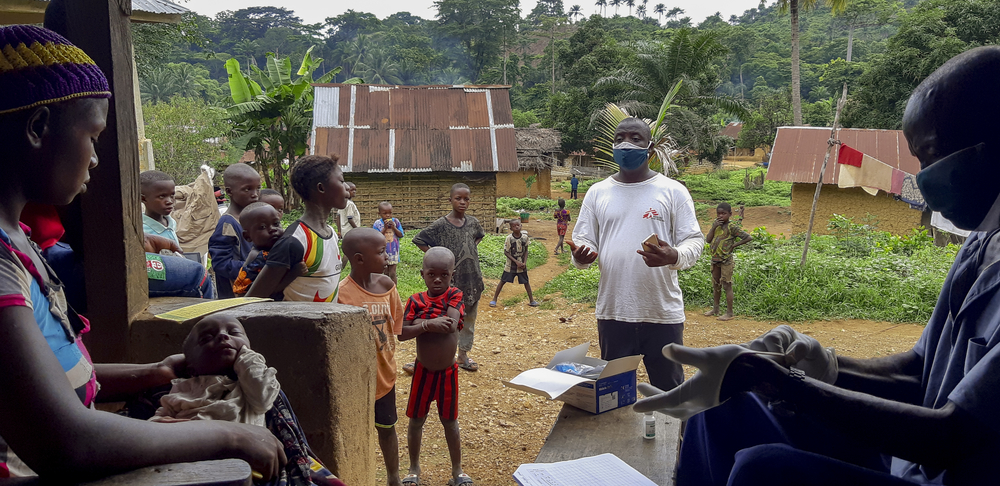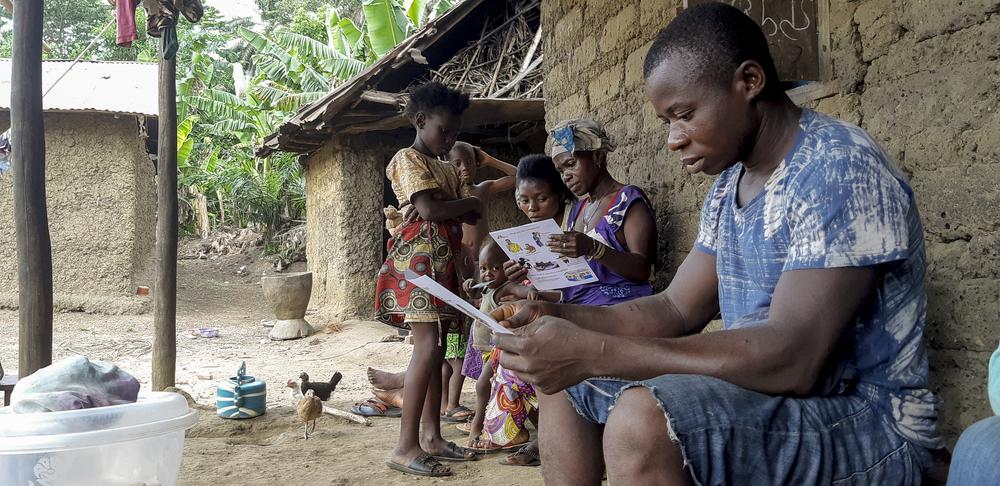Sierra Leone was later than most to experience its first cases of COVID-19. Though the virus itself did not arrive in the country until 31 March 2020, rumours and fears spread among communities well before the country’s first confirmed case. As happened during the Ebola outbreak from 2014-2016, this pandemic has led to rumours and misinformation that leave some people fearful of visiting healthcare facilities. This could have a devastating effect on children as, at 105 deaths per 1,000 live births, Sierra Leone has one of the highest rates of child mortality in the world.
Memories of Ebola mean adopting new hygiene measures to reduce the spread of a pandemic is nothing new for people in Sierra Leone. However, as during Ebola, rumours can spread easily and this can lead to a fear of visiting health facilities.
“Some of the health issues we face in our village are fever and headaches, but we are afraid of going to hospital”, says Wata, a mother of five living in the village of Bomboma, Kenema District. “We are afraid because if the ambulances come they will say you have coronavirus. If one of my children was to become sick I would go and buy drugs from the peddler because I don't want to go to the hospital where I could be tested positive for corona. We fear that if we are told we have corona we will die.”
In Kenema District, MSF runs the 63-bed Hangha hospital, providing emergency secondary healthcare to children under five. MSF also supports primary healthcare at three Ministry of Health and Sanitation Community Health Centres (CHCs) in Largo, Hangha and Nekabu. MSF outreach teams are also delivering healthcare directly in communities, as well as health promotion teams who, in addition to spreading health promotion messages, can make referrals for people they identify in need of treatment.

MSF health promoter Mohammed Turay delivers a health sensitisation session as people wait to be seen by a community health worker in the village of Mbaama, Kenema District © MSF/Tom Casey
MSF works to ensure a continuum of care to the community. From hearing messages on how to keep their children healthy, to receiving referrals to access primary or secondary healthcare, there is a network of health services available for parents should their children become ill.
But if people are too scared to visit health facilities then this continuum may break down. In January and February 2020, 80% of people referred by MSF health promoters visited a CHC afterwards but in March and April 2020, the number of people seeking healthcare after referrals fell to just 27% and 40% respectively.
These numbers have particularly concerning implications for children suffering from malaria, malnutrition or diarrhoea, conditions that are easily treatable if intervention is early but that become deadly, requiring more advanced treatment, in the absence or delay of medical care.
“Currently most people we meet are focused on COVID-19 and other health problems are forgotten”, says Wendemagegn Tefera, Health Promotion Manager at the MSF Kenema Project. “Of course, we are increasing people's understanding of COVID-19 but we are also continuing to raise awareness of other health conditions. We are not yet sure exactly how dangerous COVID-19 is for children, but we do know that malaria and severe malnutrition lead to many children losing their lives each year. Soon, it will be rainy season and cases of malaria will increase. If families don’t take their children to health facilities, then things could get out of control.”
